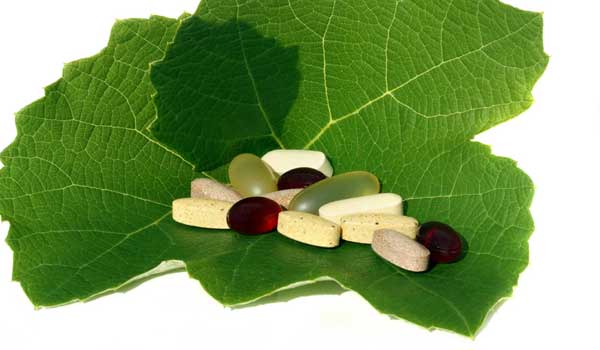Herbal Remedy Linked With Urinary Tract Cancer, Study Shows

Get the world’s most fascinating discoveries delivered straight to your inbox.
You are now subscribed
Your newsletter sign-up was successful
Want to add more newsletters?
Join the club
Get full access to premium articles, exclusive features and a growing list of member rewards.
Herbal medicine causes a significant proportion of urinary tract cancers in Taiwan, a new study finds.
The study found more than half of upper urinary tract cancers in Taiwanese patients contained a marker indicating they had been triggered by a compound called aristolochic acid. This compound, a known carcinogen, is found in Aristolochia plants, which are used in some Chinese herbal remedies.
The findings may explain why Taiwan has the highest incidence of upper urinary tract cancers in the world, the researchers said. (About 4 out of every 100,000 people in the country get the condition per year, compared with less than 1 out of 100,000 people in the United States.)
Herbal remedies containing Aristolochia plants have been used extensively there for many years, the researchers said. The researchers said that between 1997 and 2003, about one-third of the population of Taiwan used herbal remedies that contained, or were likely to contain, aristolochic acid.
The findings also suggest some U.S. laws need to be re-examined, said study researcher Arthur Grollman, of the department of pharmacological sciences at Stony Brook University in New York.
Although the Food and Drug Administration has banned imports of aristolochic acid, other herbs may contain unknown harms, Grollman said. Any herb in use as a supplementbefore 1994 is not subjected to testing for safety or effectiveness, he explained.
"[If] this herb can has terrible side effects, so could other herbs Americans take," Grollman said. "Natural is not necessarily safe," he said.
Get the world’s most fascinating discoveries delivered straight to your inbox.
A deadly herb
Also known as birthwort, Aristolochia plants were historically used in Europe to aid in delivery of the placenta during childbirth.
But aristolochic acid has been known to cause upper urinary tract cancers and kidney failure since the early 1990s, when a group of Belgian women developed these conditions after taking aristolochic acid-containing herbs for weight loss. Since then, the compound has been banned in Europe, and the United States does not allow importation of herbal remedies that contain it, Grollman said.
The researchers suspected aristolochic acid played a central role in upper urinary tract cancers in Taiwan because of the high incidence of the disease there, and the widespread use of herbal remedies containing the compound.
Grollman and colleagues examined the DNA of 151 Taiwanese patients (82 men and 69 women) with upper urinary tract cancers. They looked for a particular genetic mutation known to be caused only by exposure to aristolochic acid.
About 55 percent of the cancers contained this mutation, the researchers said.
Of those with the genetic mutation, 70 percent had aristolochic acid in their kidneys, Grollman said.
Worldwide implications
In addition, the findings may reveal why the incidence of upper urinary tract cancers is about equal in men and women in Taiwan, even though men are more likely to get the disease in other countries. More than 60 percent of all Chinese herbal remedy prescriptions in Taiwan in recent years were written for women, the researchers said.
People who take herbs with aristolochic acid at any time in life are at significant risk for developing upper urinary tract cancers, the researchers said. Because the compound can still be found in herbal remedies and is not banned in China, tens of millions of people there and in other Asian countries are at risk for these cancers, Grollman said.
The study will be published this week in the journal Proceedings of the National Academy of Sciences.
Pass it on: Herbal remedies containing aristolochic acid are likely responsible for a large portion of upper urinary tract cancers in Taiwan.
Follow MyHealthNewsDaily staff writer Rachael Rettner on Twitter @RachaelRettner. Find us on Facebook.

Rachael is a Live Science contributor, and was a former channel editor and senior writer for Live Science between 2010 and 2022. She has a master's degree in journalism from New York University's Science, Health and Environmental Reporting Program. She also holds a B.S. in molecular biology and an M.S. in biology from the University of California, San Diego. Her work has appeared in Scienceline, The Washington Post and Scientific American.
 Live Science Plus
Live Science Plus










